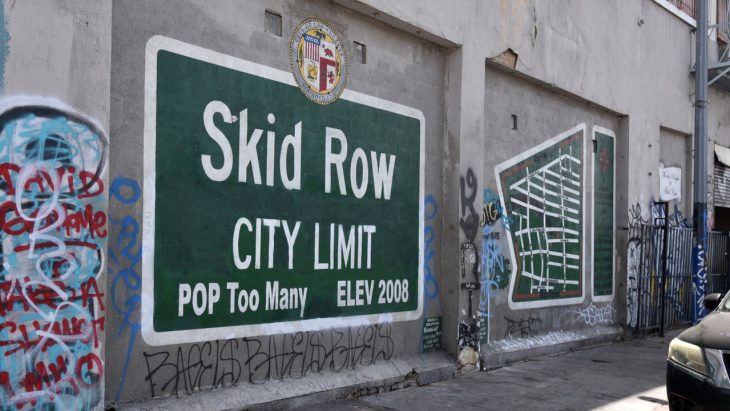LA Harm Reduction Efforts Save Lives on Skid Row
Published: 07/24/2025

There’s no question about it: LA harm reduction programs are on a mission to save lives but they’re fighting an uphill battle. It’s a battle not just against substance use disorder. It’s also a fight to protect Angelenos in an environment that’s increasingly hostile to persons experiencing addiction and homelessness.
Finding Hope on Skid Row
This past spring, the Skid Row Care Campus was opened for individuals living on the streets of this neighborhood. Some of the amenities that homeless people are enjoying from this new building include shower and laundry facilities, a covered courtyard and medication for addiction treatment.
The Skid Row neighborhood has seen struggles with dealers peddling fentanyl and meth. On a recent afternoon, some people were found sick or passed out as pedestrians walked by. Clinicians provide help through mental health and addiction treatment to those who are actively working toward sobriety.
The Skid Row Care Campus understands that not all individuals are ready to get on the pathway to recovery. The organization offers syringes so homeless people can safely dose themselves with a lower risk of contracting an illness. Additional resources given include drug test strips that can detect fentanyl contamination and naloxone to prevent overdoses.
The Controversy Continues
With intolerance to street homelessness increasing, more cities and states have adopted new tough on crime approaches that penalize individuals living outside or who have substance use disorders. The Skid Row facility is an example of Los Angeles County leaders putting an emphasis on harm reduction to solve the problem.
The homeless population in the county is currently estimated to be about 75,000 people. It is one of the largest in the nation. Advocates for harm reduction argue that this approach allows homeless people the opportunity to stay in taxpayer subsidized housing, obtain jobs and acquire healthcare, including healthcare to support addiction recovery.
Critics express concern that this approach sends a message of condoning illicit behavior. Bryan Hurley, the medical director for the Bureau of Substance Abuse Prevention and Control, noted that research suggests harm reduction helps prevent death and build long term recovery for substance users. Skid Row Care Campus features 22 recovery beds as well as arts and wellness programs and a food pantry.
If you or someone you love is struggling with addiction and homelessness, there is hope. Navigate our listings to find a detox facility that’s right for you or call 800-996-6135 today.

